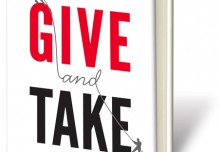Recognize this guy? Probably not, but if you’re a Mad Men fan, you’ll surely remember his gripping monologue in the last moments of the finale. The raw power of this man’s story – about how he’s felt uninteresting and invisible his whole life, like last week’s leftovers – hits Don Draper like a punch to the solar plexus. He suddenly understands, in a way that hasn’t been accessible to him before, that his pain isn’t unique, and that he’s not alone.
One of the most effective elements of this scene is that, not unlike Don himself, the dichotomy between our initial fantasy about who this character is, with his establishment haircut and Brooks Brothers sweater, and the reality of his life experience, is really quite profound. Which is precisely why the assumptions we make about other people, often without even consciously being aware of it, are so dangerous.
When I was completing my Master’s degree in executive coaching, I conducted a research study about the impact of coaching on first-time entrepreneurs. At the time, very little had been written about the messy, trial-and-error process of “becoming” an entrepreneur from the point of view of the individual who was experiencing it. And since coaching is essentially about forming productive alliances with people who are navigating messy professional transitions of all kinds, I wanted to get better at gaining access to people’s subjective understanding of what that felt like.
There is only one qualitative research methodology that provides a window into how people experience phenomena existentially, from the first-person point of view. It’s called, not surprisingly, phenomenology. In a phenomenological study, the data come exclusively from the participants’ life stories and reflections, which are acquired through a series of in-depth interviews.
To prevent the data from being tainted by the researcher’s own personal prejudices, she is expected to identify and then set aside, or “bracket,” any preconceived notions she may have about the experience she is investigating. This is easier said than done. As Max van Manen, an authority on the topic, pointed out, “The problem of phenomenological inquiry is not always that we know too little about the phenomenon we wish to investigate, but that we know too much.”
My study participants, who ranged in age from 30 to 57, were members of a co-working space for women business owners. All had previously worked in corporate jobs and now ran diverse enterprises including an art gallery, a law firm, a public relations consultancy and a virtual assistant placement agency. I tried to select for diversity, so some were married, some were single; some had kids, others didn’t. Five were white, one was African-American, and they came from diverse socio-economic backgrounds. What united them, beyond their status as relatively new entrepreneurs, was the fact that they all took advantage of the one-on-one and peer coaching opportunities that were offered to workspace community members.
As a woman, a neophyte entrepreneur myself and an executive coach, I obviously came to the interview table with a host of beliefs and assumptions about what I was investigating – beliefs that were informed by my own journey. Although I didn’t realize it at the time, the discipline of acknowledging and then doing my best to bracket those beliefs throughout the data gathering and data analysis phases of my study, so that my participants’ own stories and thoughts could emerge, was one of the most valuable exercises in my training as a coach. It’s a skill I draw on every day.
I would go even further and argue that knowing how, and when, to bracket is an essential tool for anyone who aspires to lead, manage or mentor effectively. (The same goes for parenting but, full disclosure, it’s considerably more difficult to do with family members.) Because no matter how much we might think we “know” about other people’s advantages or challenges, or what it’s like to experience a particular situation, or how familiar someone else’s circumstances appear to us, we can’t truly know how it feels or looks to the other person unless we give them a chance to tell us. And then listen to them, actively and unconditionally.
In my next post, I’ll share my findings from the research study. In the meantime, give bracketing a try the next time you are about to go into a goal-setting conversation with someone on your team, or are trying to reset a strained relationship, or in the midst of a difficult negotiation. I’d love to hear how it goes.









